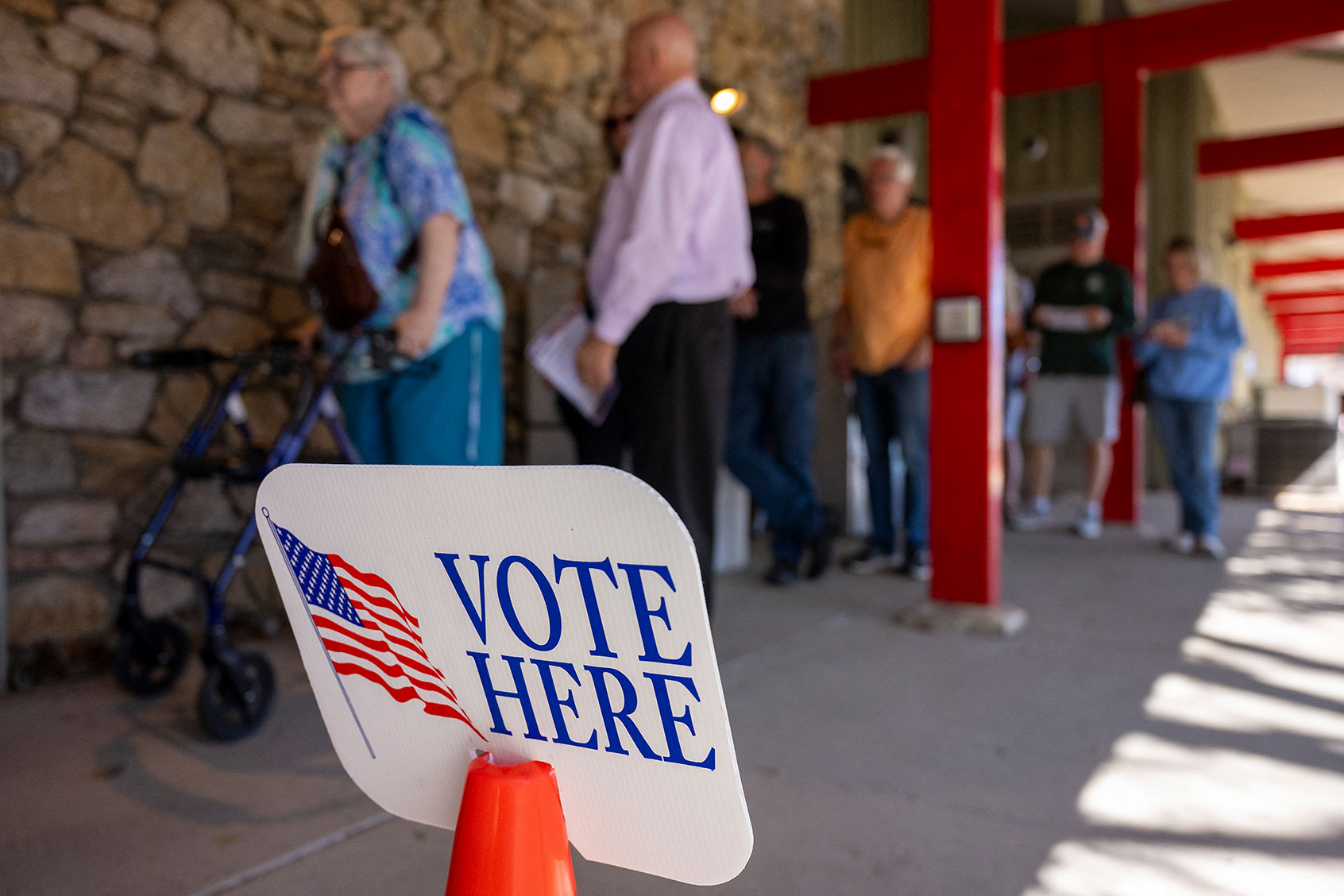Eric Holder has some choice words for the nation’s highest court.
The Obama administration attorney general accused the court of turning its back “on the protection of democracy” on Wednesday, sounding the alarm on conservative threats to the nation’s elections while speaking to a panel of senators.
“The Supreme Court is a broken institution,” the former Department of Justice head said. “I think we need to call it out for what it is.”
Holder and other Democrats were taking part in a Rules and Judiciary Committee forum convened by Democratic Sens. Dick Durbin of Illinois and Alex Padilla of California. The hearing, held a week before the 60th anniversary of the Voting Rights Act, explored federal and state-level attacks on Americans’ right to vote through testimonies from Holder, North Carolina Supreme Court Justice Allison Riggs, Loyola Law School Professor Justin Levitt and Vet Voice Foundation CEO Janessa Goldbeck.
Speakers lamented what they described as a voter suppression campaign playing out across the country. Highlights included Texas lawmakers’ proposed a congressional map that aims to add five new GOP seats to their House delegation, legislation truncating grace periods for receipt of mail-in ballots and requiring citizenship documents for voter registration, the gutting of the Justice Department’s voting rights section and concerted efforts in North Carolina to challenge voters’ ballots. Taken together, these actions threaten democracy, they warned.
“This is all about power,” Holder said. “It’s all about the acquisition and the maintenance of power. It’s about the fear that they have of the people. And I think that this body, this committee, and all Americans have to do all that we can to oppose that which they are trying to do, which is, at base, fundamentally un-American.”
North Carolina Supreme Court Justice Allison Riggs took center stage during the hearing, recounting her 2024 election challenger’s effort to discard tens of thousands of ballots. Riggs, who beat out Appellate Court Judge Jefferson Griffin by 734 votes, spent some six months battling his challenge to her electoral victory through state and federal courts.
Griffin initially sought to have the state Board of Elections throw out more than 65,000 votes he claimed were invalid, in part, because voters’ registration applications lacked required identification numbers. Though that total dwindled to around 1,600 after the Election Board’s review, North Carolina voters told Salon throughout the ordeal, which concluded with Griffin’s concession in May, that the effort to discount their ballots weakened their trust in the state’s electoral system.
Riggs cautioned that the playbook the North Carolina GOP pulled from could be deployed elsewhere.
“In an attempt to selectively overturn the results of an election that disgruntled partisans and disappointed politicians disagreed with, my father and these voters nearly lost their fundamental right to vote,” Riggs said. “What we experienced wasn’t even just about one person’s vote or 68,000 people’s votes. It was a more fundamental dispute: do voters — not politicians — decide elections? And if the answer to that is no, then no voter will ever come out of a polling place feeling confident that their vote will count.”
Republican legislators and the Trump administration have pushed regulations that make it more difficult to vote. Legislation like the SAVE Act, requirements to present documents in person and restrictions on mail-in ballots put forth in Trump’s March executive order add additional hurdles to participation. Goldbeck, a former U.S. Marine Corps combat engineer officer, worried that the added requirements for voter registration would have a disproportionate impact on military service members stationed overseas.
“Voting is their one form of sanctioned political speech,” Goldbeck said. “So to make that harder for folks to vote, to challenge their ballots that are lawful and submitted on time, it is incredibly disrespectful to every person in uniform. It’s incredibly disrespectful to the Constitution that we have said we would die to defend.”
Levitt decried the administration’s request that states send their voter roll information to the Justice Department to quell unsubstantiated concerns of widespread voter fraud. The former official in the Civil Rights Division of the DOJ argued that Trump’s admin is overstepping its legal authority and sowing distrust in the executive branch.
“The Department of Justice has a files issue and a trust issue,” Levitt said. “That is, the Department of Justice right now has a number of files that they should be releasing that they are keeping hold of, and a number of files that they never should be acquiring in the first place.”
But Riggs delivered a message of hope for Americans wearied by attacks on voting rights. She told a story that highlighted the lengths advocates would go to protect the sanctity of voting, saying her team reached a North Carolina service member stationed in Antarctica to inform them of the challenge to their voter registration and ensure they wouldn’t be disenfranchised.
“Folks only try and silence voices and votes that they’re scared of,” she said. “So we will find that silver lining, keep fighting, and even though we know these will keep coming until policymakers push us in a different direction, we’re up to that fight.”
Holder added that everyday Americans have a similar capability to protect democracy.
“We are, I think, in a constitutional crisis, but it’s not over,” he said. “We still have power. If people participate in elections, if people are engaged in civic activities, I think we can push back against this power grab.”
Read more
about voting rights


